We are stepping into a time where AI is significantly influencing the job market. It is predicted that by 2025, roughly 85 million jobs globally could be automated. This is particularly relevant in sectors such as transportation, manufacturing, and administration.
However, this change is not entirely negative. The rise of AI also opens up new job opportunities in areas like AI development, ethics, and cybersecurity. This emphasizes the need for you to adjust and improve your skills. Abilities such as strategic thinking and emotional intelligence will become more important.
Customer service is one sector that will undergo significant changes, with AI potentially automating up to 85% of inquiries, which will set a new standard. Understanding these changes and how they impact the job market is essential for staying ahead.
Table of Contents
Key Points
- AI can undertake repetitive tasks, affecting jobs in transportation, manufacturing, and administration.
- AI could manage almost 85% of customer inquiries, lessening the need for human customer service representatives.
- The advent of self-driving technology poses a threat to traditional driving and transportation positions, which might lead to job losses.
- AI tools such as ChatGPT are changing the way programmers work, making their tasks more efficient.
- Jobs in the financial sector that involve repetitive tasks are at a high risk of being automated. This change implies the need for workers to develop new analytical skills for their remaining roles.
The Automation Wave
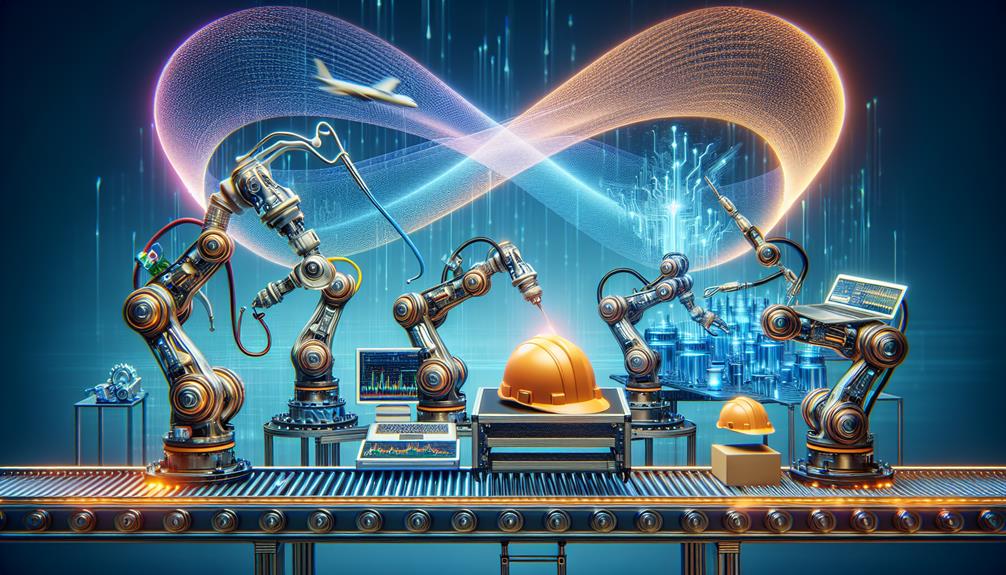
The automation wave, characterized by the swift incorporation of AI in numerous sectors, is set to change the world’s job market by 2025. Both individuals and industries must adapt to these technological changes.
With AI potentially taking over 85 million jobs worldwide, it’s not just repetitive tasks that are under threat. People working in sectors like transportation, manufacturing, and administration should brace for significant changes.
However, this isn’t just about job losses. New roles in AI development, ethics, and cybersecurity are emerging, highlighting the ever-changing future job scene. Legal regulations around AI employment will also evolve, underscoring the need for humans to adapt in this era of constant automation.
Jobs at Risk
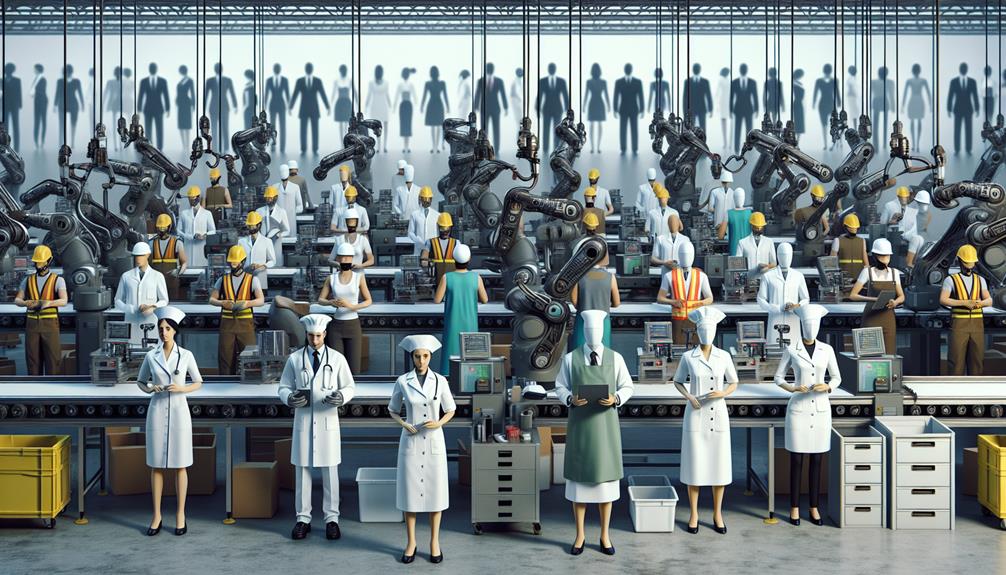
As AI continues to grow, it’s predicted to automate up to 85 million jobs by 2025. This is especially true for jobs involving repetitive tasks. For example, paralegals often have to go through a large number of legal documents. Similarly, computer programmers frequently deal with repetitive coding sequences. These professions could face significant job losses as AI evolves.
It’s not just these fields, though. Automation is changing everything, from transportation to administration. It’s crucial to keep an eye on these market trends. However, it’s not all about job loss. It’s also about adapting to these changes.
Certain skills are harder for AI to replicate. This includes strategic thinking, creativity, and emotional intelligence. These skills are becoming increasingly important. AI might be able to replace certain jobs, especially those with repetitive tasks. However, this also highlights the importance of evolving with the changing job landscape.
In this changing environment, we need to focus on developing the skills needed in a world after automation. It’s a transformative period, but it also presents opportunities for growth and adaptation.
AI in Customer Service
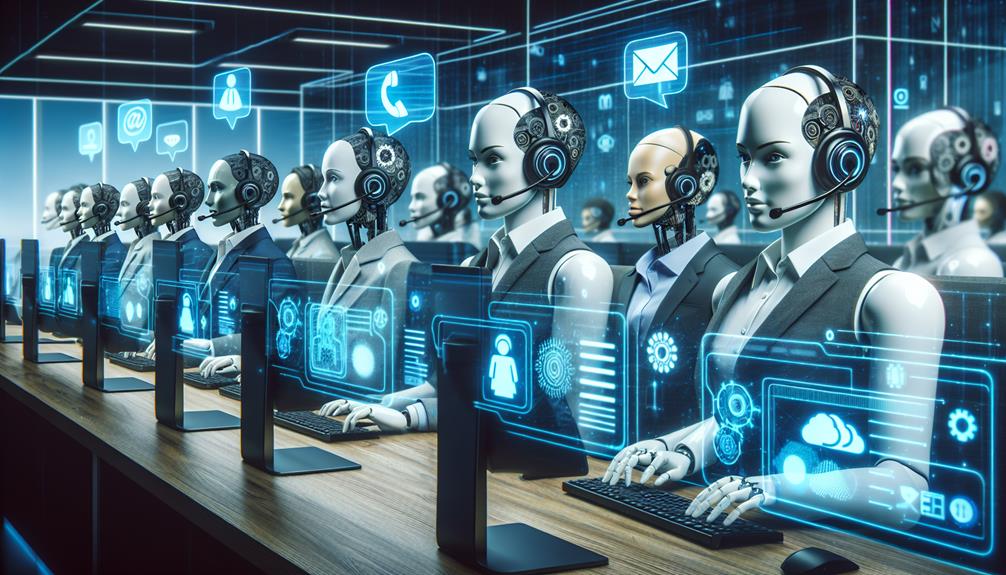
The use of AI in customer service is transforming the way businesses communicate with their customers. It’s predicted that by 2025, AI could automate up to 85% of customer inquiries. Thanks to AI automation, chatbots and virtual assistants are quickly replacing human representatives for many customer interactions.
AI technology provides fast and accurate responses, which is why self-service and AI-driven systems are becoming more popular. They help streamline processes and improve overall efficiency. But this change in customer service doesn’t just modify the way services are delivered; it’s changing the entire industry.
Job roles are changing, and new skills are becoming necessary for employees. As businesses start to use AI solutions more and more, they’re not just altering customer service as we know it. They’re also setting a new benchmark for how businesses should operate to stay competitive and innovative.
Driving and Transportation
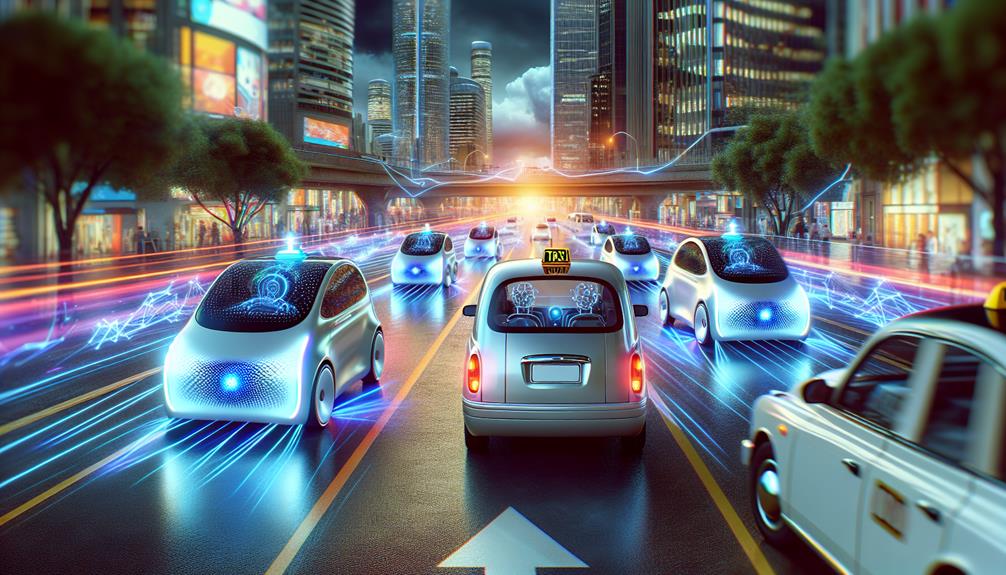
AI automation is changing many sectors, including customer service and transportation. Major players in this field, such as Tesla and Waymo, are leading the way in creating self-driving vehicles. This new technology is a game changer for traditional driving roles. Ride-sharing services like Uber and Lyft are now using these AI-driven vehicles. The main goal is to cut costs and improve the quality of their services.
But, there’s a downside. With the rise of self-driving vehicles, many transportation jobs could disappear. This brings up issues about job displacement. So, there’s an immediate need to create programs that can help these workers find new jobs. This change shows that we’re at a critical point in history. AI may soon transform a lot of transportation jobs. It’s time to reevaluate what the workforce of the future will look like in an AI-dominated era.
Programming and Coding
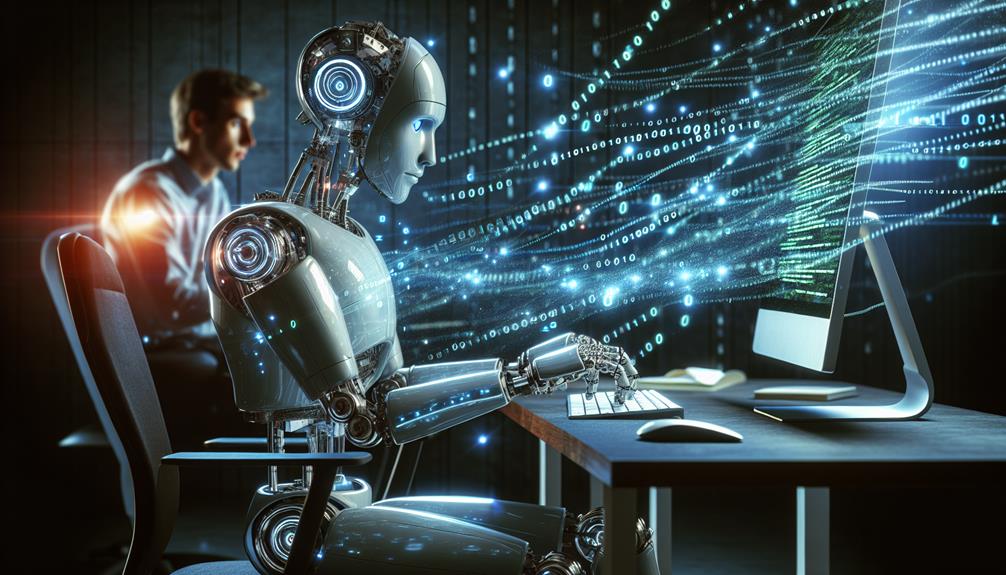
AI tools such as ChatGPT are changing the game in the coding and programming world. They generate code at rates that outpace human capabilities. The increase in automation brings about a boost in efficiency and a higher degree of code accuracy. This helps in mitigating the issue of human error in the process of software development.
AI algorithms are particularly good at handling repetitive coding tasks. This reduces the need for human programmers, making the entire software development cycle more efficient. But, this rise in productivity also impacts the job market. It particularly affects traditional programming roles.
Analytical Roles
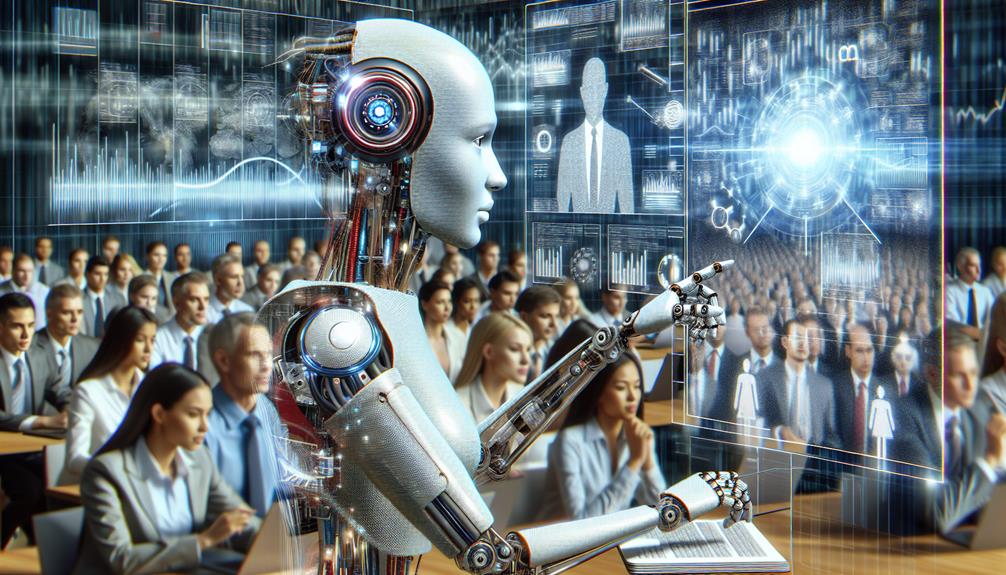
AI isn’t only changing programming and coding but also significantly transforming analytical roles, including those of research analysts. The use of AI algorithms simplifies data analysis and report production, fundamentally changing the field. Automation improves efficiency in processing extensive datasets and quickly uncovering insights. Tasks that traditionally needed substantial human intervention, such as trend analysis and forecasting, are now increasingly handled by advanced machine learning models.
This change creates a need for professionals to learn these technologies and improve their strategic and interpretive skills. As AI handles more complex data analysis tasks, your role isn’t getting smaller; it’s changing. This change shouldn’t be seen as a threat, but as an opportunity. The future is here and it’s time to adapt. With AI handling the heavy lifting of data analysis, you can focus on improving your strategic and interpretive skills in analytical fields.
AI doesn’t replace you; rather, it helps you become more efficient, allowing you to focus on strategic tasks. It’s important to adapt and learn these new technologies to stay relevant in the changing landscape. With AI, you can do more and do better. So, let’s welcome these changes and make the most of AI’s capabilities.
Legal Sector Transformation

The legal sector is seeing significant changes with the adoption of AI. Tasks such as reviewing legal documents and analyzing research are becoming more streamlined thanks to automation. This is altering the roles of paralegals and legal assistants, moving them from traditional duties to more strategic positions. This shift does more than just increase productivity; it transforms it. The use of AI to automate language-related tasks brings a level of productivity boost that was previously unachievable. This is pushing the legal industry towards a future where being efficient is of utmost importance.
But it’s crucial to note that human expertise still plays a significant role. It’s used in a different way, though. It’s now focused on interpreting the insights provided by AI to make complex decisions in legal cases. This combination of human intelligence and machine efficiency marks the beginning of job evolution in the legal sector. It paints a picture of a future where automation and human abilities merge to reach a level of efficiency that’s second to none.
Manufacturing and Warehousing
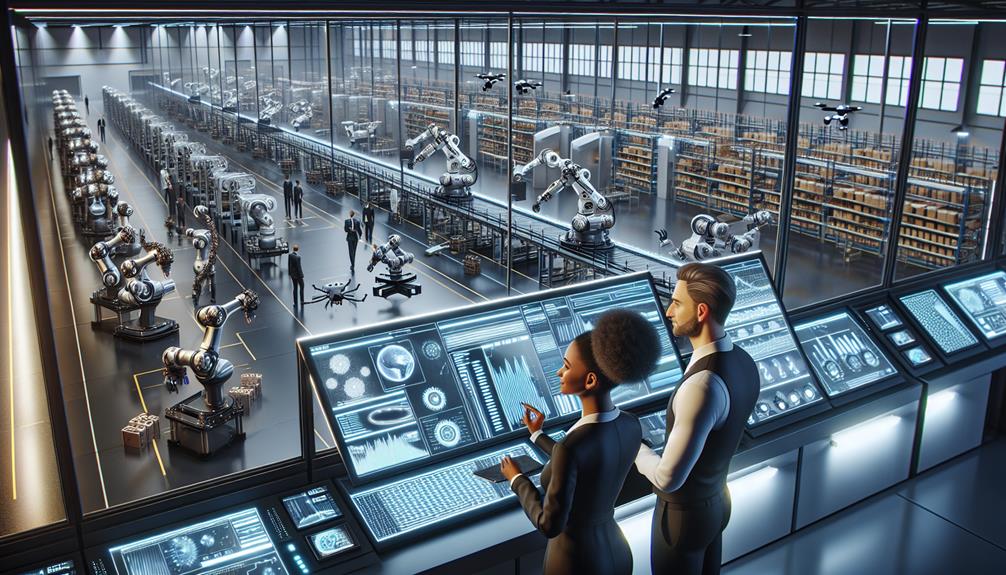
Much like the law field, the manufacturing and warehousing industry is experiencing deep changes due to AI. Predictions suggest that by 2030, AI could take over 20 million jobs. Advanced technology-driven automation is taking over tasks such as assembly line work, packaging, and managing inventory. Big businesses like Amazon and Tesla are using AI-controlled robots and machinery to improve productivity, streamline production processes, and decrease the need for human workers.
But this drastic change isn’t just about fewer jobs. It’s also changing the roles and skills needed in the industry. Workers have to learn new skills to manage and work with these high-tech systems. The future of manufacturing and warehousing is a mix of human creativity and robot accuracy.
Financial Sector Disruption
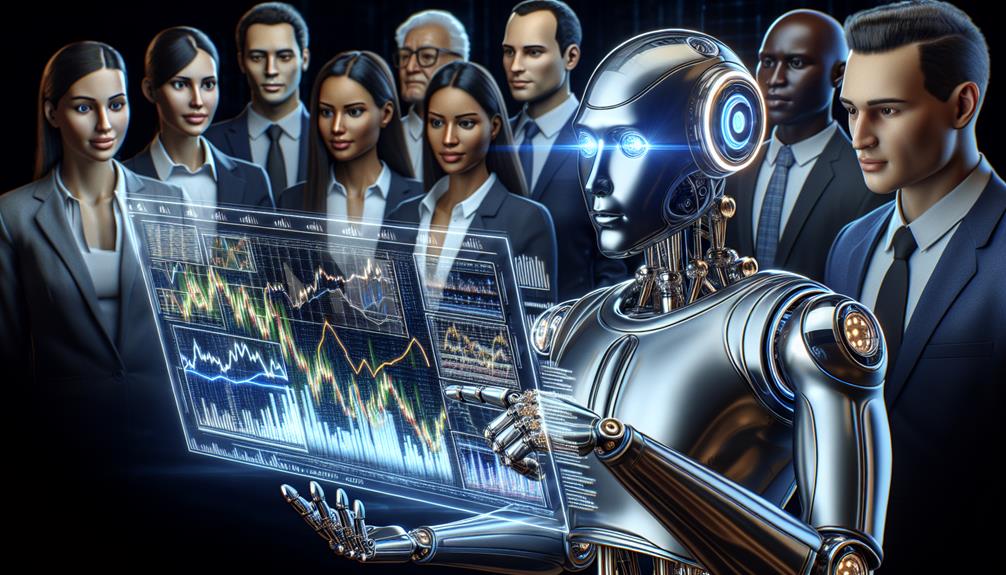
AI tools in the financial sector are causing a significant change, particularly in roles traditionally held by accountants and financial analysts. These tools automate financial analysis and reporting processes, often leading to job losses in positions focused on repetitive financial tasks. Despite this, human expertise remains crucial in interpreting AI-provided insights.
The combination of AI and human expertise is setting a new standard in the financial industry. AI advancements enhance efficiency and decision-making processes. As the use of AI tools becomes more widespread, financial professionals must adapt by developing skills to analyze and apply the data provided by AI.
This shift signifies a future where financial professionals collaborate with AI to achieve higher levels of efficiency and insight in decision-making. The industry is evolving as it embraces these technological advancements, presenting an exciting time for financial professionals to evolve and adapt to new ways of working.
Creative Professions Impact

The creative sectors, such as graphic design and content creation, are experiencing significant changes due to the integration of automation and AI technologies. AI tools like Adobe Photoshop‘s Generative Fill and other AI-driven design platforms are changing the way creatives work.
These advancements in AI can independently generate design concepts, layouts, and content. They’ve the potential to reduce human involvement in certain tasks. However, even with AI’s proficiency in creating visuals and content, the importance of human creativity and critical thinking can’t be overlooked.
The creative industry is probing these AI advancements and finding new ways to work alongside technology. This shift points towards a future where human expression and innovation can coexist with AI. It encourages a mutually beneficial relationship between technology and human creativity within creative professions.
Conclusion
The rapid acceleration of automation is causing a significant shift in many sectors. Interestingly, studies forecast that AI has the potential to replace nearly 40% of jobs within the next 15 years. This isn’t just a random number; it’s a wake-up call for everyone to evolve and adapt.
The future job market will need more than just technical skills. It demands a versatile and innovative workforce. It’s crucial to understand and utilize the potential of AI while planning strategically for a future where human creativity and AI coexist.

Paul Kinyua is a seasoned content writer with a passion for crafting engaging and informative tech and AI articles. With a knack for storytelling and a keen eye for detail, he has established himself as an authority in the field.
